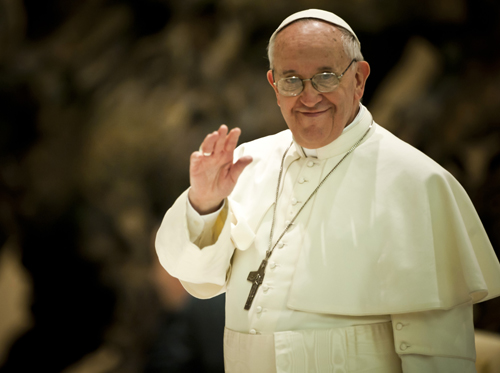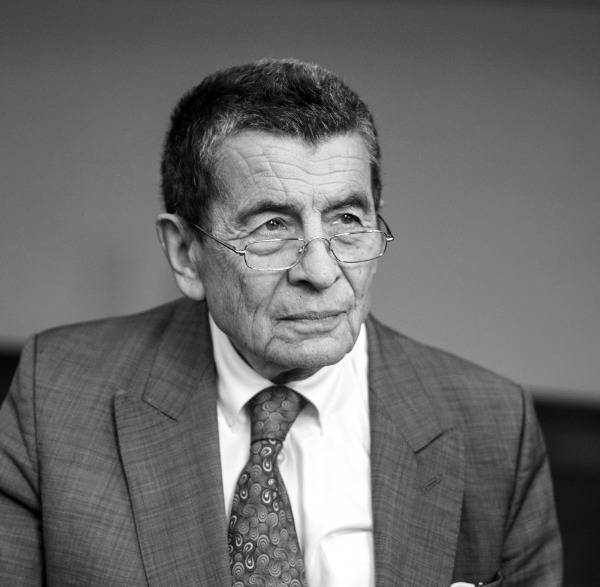
Yesterday Pope Francis approved a major overhaul of the Vatican’s criminal laws. The reforms, which will come into force from September, include new penalties for leaking confidential documents and child sexual abuse. The harsh punishments for leaking are clearly prompted by the case of Paolo Gabriele, the butler for then-Pope Benedict XVI, who leaked Benedict’s confidential correspondence (including tasty details on corruption and homosexual relations) to the Italian media. He was convicted of theft, and sentenced in August 2012 to 18 months’ confinement in the Vatican barracks, but later pardoned by the pope.
But, besides installing new legislation to better cover the Church’s back, Francis also toughened the penalties on the issue that has burdened the institution’s image for decades: child sex abuse. The new legislation on "crimes against minors" covers child prostitution, sexual violence, sexual acts with children and indecent images of children. The new punishments for these crimes range from 5 to 10 years imprisonment and a fine of up to €150,000 (£130,000). The new rules apply to all employees of the Vatican City State and also to employees of the Holy See – even if the crimes are committed outside the Vatican.
Any improvement in the Catholic Church’s treatment of child abuse cases is obviously to be welcomed. There might, however, be a reason other than the pope’s general benevolence on this occasion. On Tuesday, the United Nations Committee on the Rights of the Child (CRC) released a “list of issues”, which includes, well, a list of issues, that the representatives of the Holy See need to address when appearing in front of the Committee’s panel early next year.
All countries that have ratified the UN Convention on the Rights of the Child have to take part in these periodic evaluations. The CRC’s list of issues, no doubt influenced by the lobbying of the National Secular Society amongst others, requests details on several controversial points. For example, paragraph 11 reads:
“In the light of the recognition by the Holy See of sexual violence against children committed by members of the clergy, brothers and nuns in numerous countries around the world, and given the scale of the abuses, please provide detailed information on all cases of child sexual abuse committed by members of the clergy, brothers and nuns or brought to the attention of the Holy See over the reporting period. For all these cases, please provide detailed information on:
(a)The measures in place to ensure that no member of the clergy currently accused of sexual abuse be allowed to remain in contact with children ... as well as the cases where priests were transferred to other parishes or to other States where they continued to have access to and abuse children;
(b)The explicit instructions given at all levels of the clergy to ensure the compulsory reporting to national competent authorities;
(c)The type of support and protection provided by the Holy See to child victims of sexual abuse party testifying against their sexual abusers and the cases where children were silenced in order to minimize the risk of public disclosure;
(d)The investigations and legal proceedings conducted under penal canon law against perpetrators of sexual crimes and their outcome, as well as the cooperation provided by the State party proceedings engaged in countries where the abuses were committed;
(e)The number of child victims who have been given assistance for recovery, including psychological support and social reintegration and have received financial compensation... please clarify whether the confidentiality of the proceedings were imposed on child victims as a condition precedent of financial compensation”
Abuse victim support groups have praised the CRC’s inquiry. Barbara Blaine of the Survivors Network of Those Abused by Priests (SNAP) said: "The fact that a UN committee has called the Vatican to account for its record on children's rights, including the right to be free from sexual violence and exploitation, is giving survivors all over the world hope." Vatican representatives nevertheless downplayed CRC’s request. The Rev. Massimo De Gregori, a member of the Holy See’s diplomatic mission to Geneva, said that the questioning was a “routine procedure,” and “While we don’t deny the gravity [of child sex abuse], someone is trying to take advantage [of the U.N. committee procedure].”
Advantage taking or not, even for a reformist pope the CRC’s inquiry may go too far. Although the Vatican has previously replied to the UN’s more general inquiries on sexual abuse, the CRC’s list of issues requests more detail than any UN document before. To withhold information would obviously further tarnish the Church’s image, but on the other hand, it is unlikely that the Vatican are too keen to expose all the details for the world to see.
The Vatican tougher stance on paedophile priests is unprecedented, as the closest thing to sex abuse state’s legislation previously included was a vague notion on crimes against “good customs.” But, as the announcement was made a mere two days after the CRC list emerged, it puts the real motivation behind the reforms into question. The director of SNAP, David Clohessy commented on the new child abuse ban: "In the real world, this changes virtually nothing. It's is precisely the kind of 'feelgood' gesture that Vatican officials have long specialised in: tweaking often-ignored and ineffective internal church abuse guidelines to generate positive headlines but nothing more.” He added: “The church hierarchy doesn't need new rules on abuse. It needs to follow long-established secular laws."
The fact that the reform punishes the leaking of internal documents more harshly than perpetrators of child abuse (leakers face up to eight years in prison if the material concerns the "fundamental interests" of the Holy See or its diplomatic relations) should tell us something about the real priorities of the Catholic authorities.

